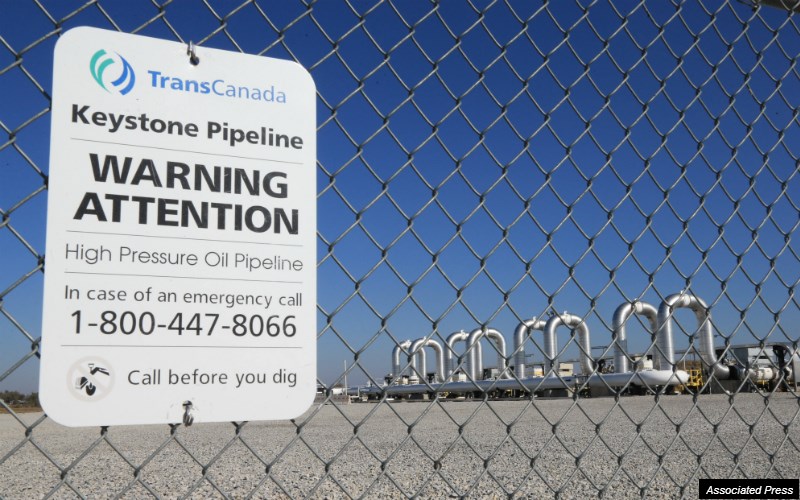On January 20, 2021, Biden explained that he based his decision on what his administration labels as man-made climate change:
"Climate change has had a growing effect on the U.S. economy, with climate-related costs increasing over the last four years. Extreme weather events and other climate-related effects have harmed the health, safety, and security of the American people and have increased the urgency for combatting climate change and accelerating the transition toward a clean energy economy. The world must be put on a sustainable climate pathway to protect Americans and the domestic economy from harmful climate impacts, and to create well-paying union jobs as part of the climate solution.
"The Keystone XL pipeline disserves the U.S. national interest. The United States and the world face a climate crisis. That crisis must be met with action on a scale and at a speed commensurate with the need to avoid setting the world on a dangerous, potentially catastrophic, climate trajectory. At home, we will combat the crisis with an ambitious plan to build back better, designed to both reduce harmful emissions and create good clean-energy jobs. Our domestic efforts must go hand in hand with U.S. diplomatic engagement. Because most greenhouse gas emissions originate beyond our borders, such engagement is more necessary and urgent than ever. The United States must be in a position to exercise vigorous climate leadership in order to achieve a significant increase in global climate action and put the world on a sustainable climate pathway. Leaving the Keystone XL pipeline permit in place would not be consistent with my Administration's economic and climate imperatives."
Ben Lieberman, senior fellow for the Washington, DC-based Competitive Enterprise Institute, says those words and that philosophy are coming back to bite the president.

"He's faced a year of relatively high gasoline prices – and virtually everything this president has done that would affect the price at the pump has been directionally towards raising those prices, not just infrastructure projects like Keystone XL but also trying to slow down or even stop federal leasing for oil and gas activity on federal lands," says Lieberman.
"… He tried to stop all of that but that was overturned in court, and the administration is now doing some leasing, but that's not for a lack of trying," he adds. "So, everywhere you look are efforts to reduce both the supply of domestic oil and the ability to get that oil where needed."
Sterling Burnett, Ph.D. of The Heartland Institute concurs, saying the canceling of Keystone XL was a mistake. "This decision was bad for the environment, it was bad for both Canada and America, and the economy, both Canada's economy, America's economy, and the world economy," he says.
Read January 2021 column by Ben Lieberman:
Biden Attack on Keystone pipeline bodes ill for jobs, economy







